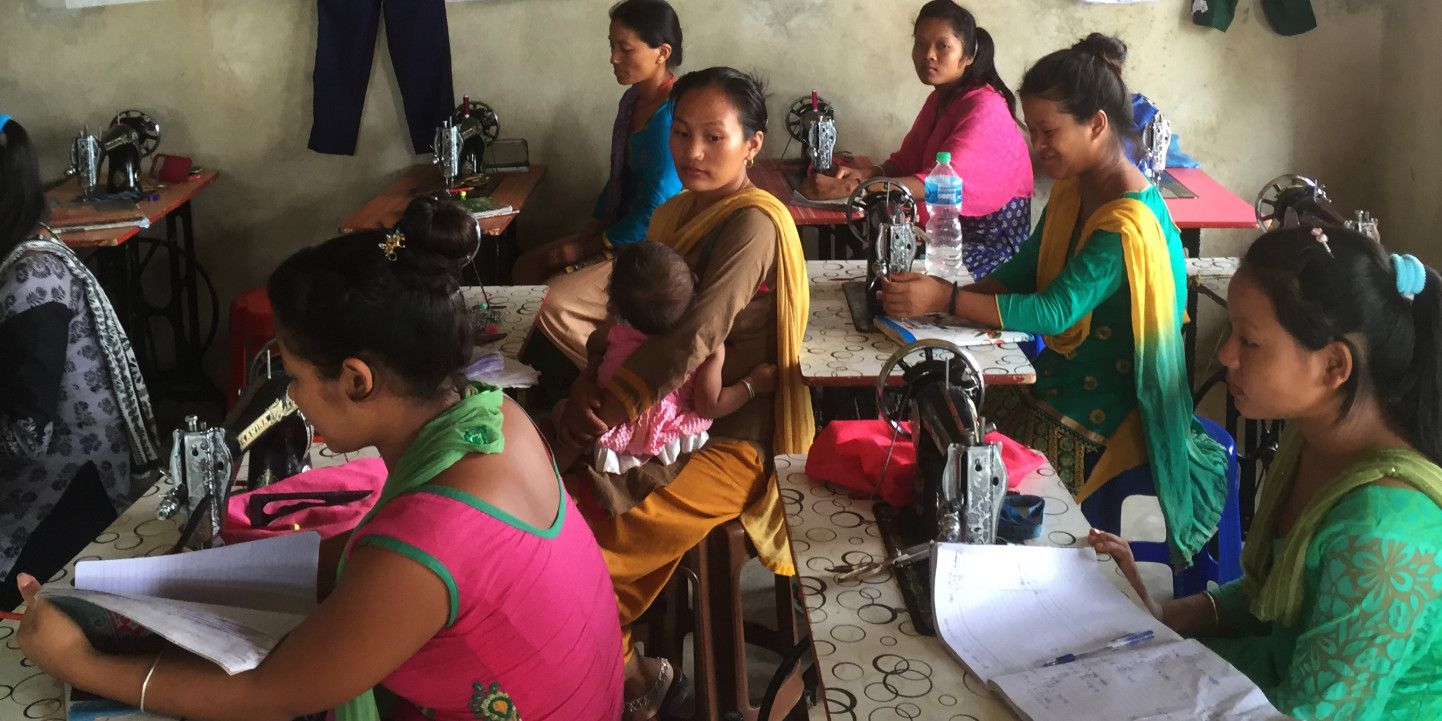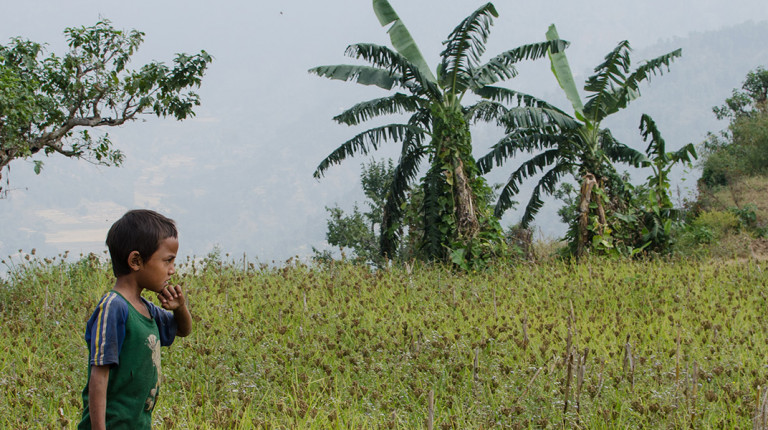Miranda Cahn, Save the Children’s former Director of International Programmes, discovered just how much of a difference our supporters are making possible for local women and their children with our five-year project in Udayapur, Nepal.
We’re helping thousands of children in Udayapur, Nepal, to escape lives of poverty by enabling families to create more profitable ways to make a living. Around 40% of the children here are malnourished and many cannot attend school on a regular basis because they have to either work or look after younger siblings while their parents go out to work. Our supporters are changing futures for these children.
Almost as soon as I arrived I got a taste of how people’s lives are beginning to change. The project team and I visited a vocational training centre to check in on the Youth Training programme. Twenty-seven young men and women from the nearby villages are being trained in carpentry and garment sewing.
These young people have no access to land of their own to farm, and therefore no way of earning incomes or feeding themselves and their families. But what really struck me was the common theme that came through from the women’s stories.
Women marry very young here, usually in their early teenage years. These women, still girls really, had been abandoned by their husbands and left with absolutely no means of supporting themselves.
For these women and girls, being employed or starting a small business through this project means economic security. It means independence for them. It means a future.
The farms are flourishing
The following morning we drove to another village I had visited on a previous trip. Our supporters are enabling farming families to learn new skills so they can better feed their families the whole year round and sell food at local markets to increase their incomes.
I was really anxious to see how they were getting on. Wow, what a difference they have made already!
The farms we saw now were growing profitable vegetable crops – bitter gourds, beans, tomatoes and mushrooms. There was a whole hillside of healthy, thriving crops and the farmers were enthusiastic about their progress.
A new dynamic
Later we talked with the farmers’ group about their hopes and plans for the future, and they told me how they will use their extra money to support their children’s educations. The women sat on the floor at the front in a place of prominence, rather than being hidden in the back and marginalised.
The women were keen to tell me that in this project they felt empowered and valued, which is apparently unusual for them, and that they were encouraged to speak up and share their knowledge.
They also spoke of financial independence. I was surprised but encouraged; in my experience it is rare for women to speak so openly of empowerment in a mixed group in a male-dominated country. The visit was exciting and motivating. I could really see how we're empowering women and the difference this is making for families and their children.



